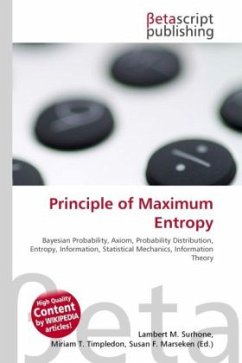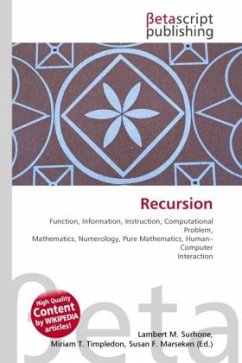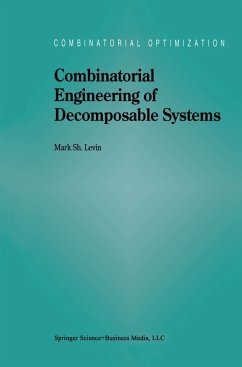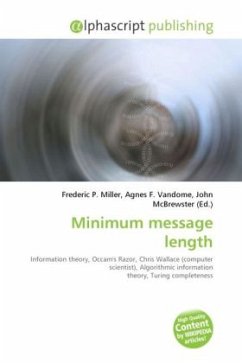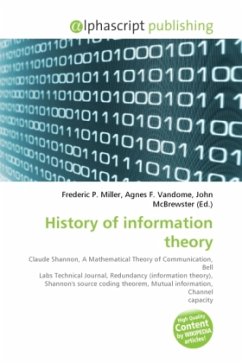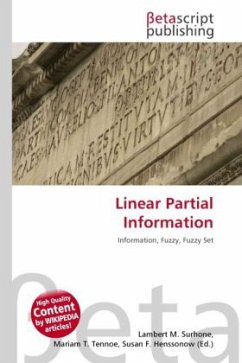
Linear Partial Information
Versandkostenfrei!
Versandfertig in 6-10 Tagen
23,99 €
inkl. MwSt.

PAYBACK Punkte
12 °P sammeln!
High Quality Content by WIKIPEDIA articles! Linear partial information (LPI) is a method of making decisions based on insufficient or fuzzy information. LPI was introduced in 1970 by Polish - Swiss mathematician Edward Kofler (1911 - 2007) to simplify decision processes. Comparing to other methods the LPI-fuzziness is algorithmically simple and particularly in decision making, more practically oriented. Instead of often dubious indicator function the decision maker linearizes any fuzziness by establishing of linear restrictions for fuzzy probability distributions or normalized weights. In the ...
High Quality Content by WIKIPEDIA articles! Linear partial information (LPI) is a method of making decisions based on insufficient or fuzzy information. LPI was introduced in 1970 by Polish - Swiss mathematician Edward Kofler (1911 - 2007) to simplify decision processes. Comparing to other methods the LPI-fuzziness is algorithmically simple and particularly in decision making, more practically oriented. Instead of often dubious indicator function the decision maker linearizes any fuzziness by establishing of linear restrictions for fuzzy probability distributions or normalized weights. In the LPI-procedure the decision maker linearizes any fuzziness instead of applying a membership function. This can be done by establishing stochastic and non-stochastic LPI-relations. A mixed stochastic and non-stochastic fuzzification is often a basis for the LPI-procedure. By using the LPI-methods any fuzziness in any decision situation can be considered on the base of the linear fuzzy logic.



